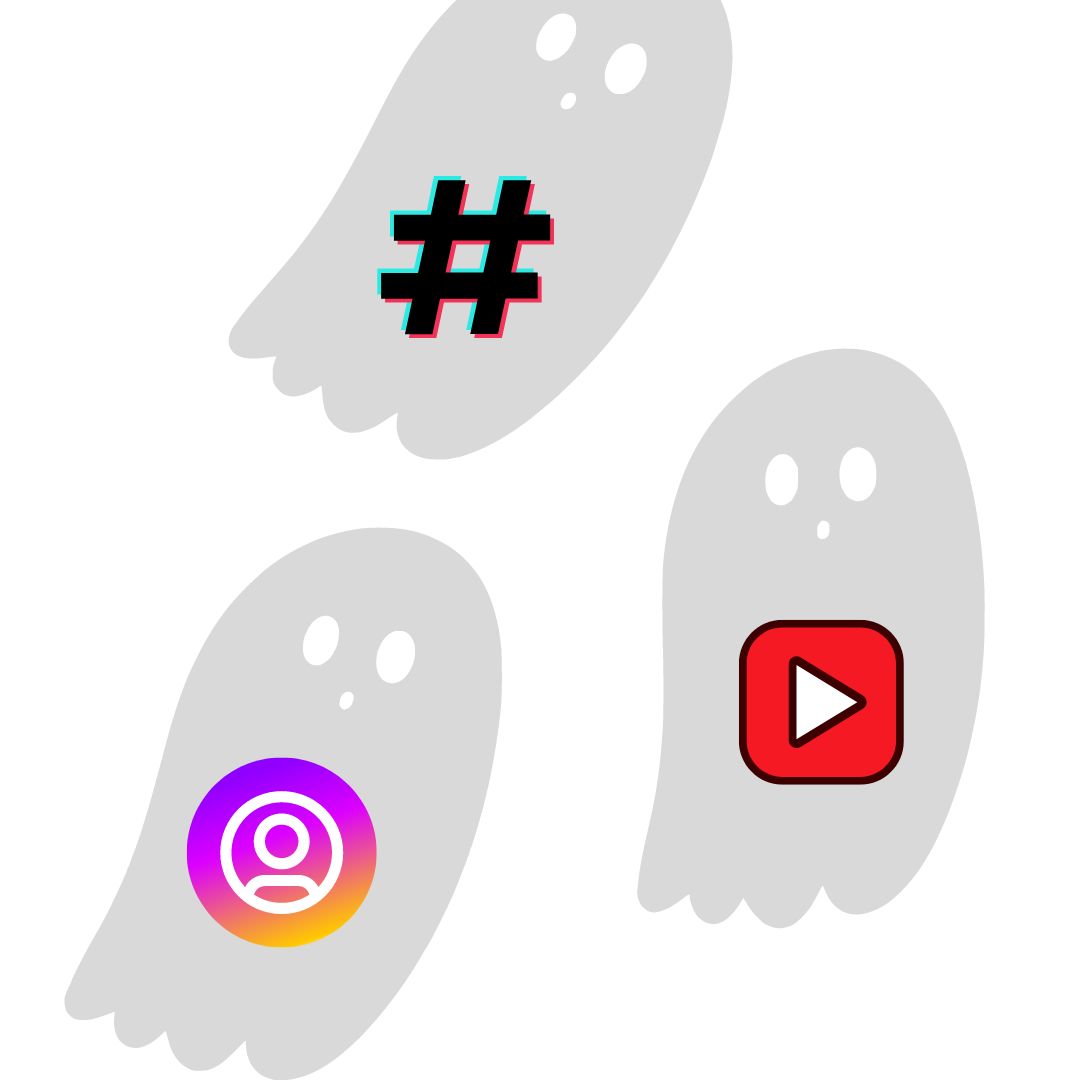In the digital age, the term “ghosting” has become a familiar part of our social vocabulary, particularly with online communication and interactions – either personal (e.g., dating apps) or professional. Ghosting refers to the sudden and unexplained cessation of all communication with someone, effectively disappearing like a ghost. When a brand or creator is ghosted, they are left without closure, wondering what went wrong and why the other person vanished.
Ghosting seems to be a big issue for brands and it can get expensive in terms of product seeding or gifting campaigns. After lots of back and forth and outreach efforts, when creators express interest in working with a brand and then go AWOL, it is frustrating to say the least.
What’s ironic is when I surveyed our Mom Creator Facebook group about ghosting – they said the problem is actually the reverse, i.e., brands ghosting them. Very few say they have ever ghosted a brand and almost all of those say the ghosting happened prior to receiving product. Those that had gone MIA on a brand detailed the extenuating circumstances.

Here, I will use those circumstances and how brands can use these as learnings for what NOT to do when it comes to creator collaborations ghosting can be avoided.
Rule #1: Be transparent about the terms of the collaboration at the outset.
“I have ghosted when I receive an email saying it’s a paid collaboratin but turns out only to be commission-based, especially when they’re requesting a ton of deliverables.”
“The only time I’ve ghosted is when they contact offering a collaboration, I email back asking for details, and then they email me back and it turns out to be an unpaid deal with A LAUNDRY LIST of stipulations/requirements.”
Creators expressed frustration with brands who define a collaboration as “paid” (which implies a cash payment), only to find out it is performance-based (i.e., affiliate.) Brand representatives should be super clear on compensation structure, else they may appear to be baiting & switching.
Rule #2: Define expectations clearly (talking points, content requirements, etc.) – including desired rounds of revisions – BEFORE the content is created.
“Accepted a sample, created the video. [Brand] didn’t like the video, but did not discuss with me what they wanted in the video beforehand. Kept messaging me and demanding I redo my video. Um, no. Ghosted.”
“I ghosted after I posted the video. I was very straight forward with telling them I was not currently pregnant at the very beginning, they told me it was fine, I posted content, then they were upset I didn’t mention pregnancy in the video.”
It is crucial for brands to be clear about the terms of a partnership with a content creator to ensure mutual understanding and alignment of expectations. Clear terms help avoid misunderstandings, foster trust, and create a framework for accountability, ensuring that both parties fulfill their commitments. Additionally, transparent agreements protect the brand’s reputation and help maintain a positive, professional relationship, which is essential for successful and sustainable collaborations.
Rule #3: Be responsive.
“I did a brand collaboration but the product broke while I was creating content. I immediately contacted the brand explaining what happened and asked if they could fix it. I never heard back from my email so I messaged on Instagram. Never heard back. So, at that point I did not post my content.”
“Sometimes brands won’t respond about things like draft edits for a loooong time and then I’m often busy with other collaborations I’ve entered into in the meantime, and I feel obligated to complete those.”
Being responsive during a collaboration with a content creator or influencer is essential for brands to maintain effective communication and address any issues or changes promptly. Responsiveness helps to keep the project on track, ensures that the content aligns with the brand’s vision, and allows for timely adjustments if needed. It also demonstrates the brand’s commitment and professionalism, fostering a positive working relationship and enhancing the likelihood of successful and ongoing collaborations.
Rule #4: Don’t be generic – personalize your communication.
“When I ghost it’s usually because the brand is scammy or feels off.”
“The brand reached out saying they love my content but the product they want me to promote has nothing to do with my niche. It lets me know they really didn’t do their research on me.”
Resist the copy/paste urge – even if it feels like it will save you time. Personalizing outreach messages to influencers is vital for brands as it shows genuine interest and respect for the influencer’s unique voice and content. Personalized messages stand out amidst generic pitches, increasing the likelihood of a positive response and collaboration. By acknowledging the influencer’s specific work and audience, brands can build stronger, more authentic relationships, leading to more effective and impactful partnerships that resonate with the influencer’s followers.
Rule #5: Be patient & reasonable (especially when it comes to mom creators.)
“I’ve never “ghosted” a brand but I have had a significant delay in my response. I have two kids and sometimes life gets in the way. I’ve also followed up as soon as I could to express my gratitude for the opportunity and apologized for not being responsive. I give a brief explanation and give them the option to delay the partnership or offer to return the product. Nine times out of ten, the brand is extremely understanding and allow me to postpone the campaign.”
“I’ve never ghosted brands in an active collaboration, but I have had delays in my communication (always working on this!). Definitely life events play into these.”
Aside from life getting in the way, creative processes often require time for ideation, production, and refinement, and rushing these can compromise the content’s effectiveness and authenticity. By being patient, brands demonstrate respect for the creator’s craft and expertise, fostering a more positive and collaborative relationship that ultimately leads to better long-term results.
Leave a Reply